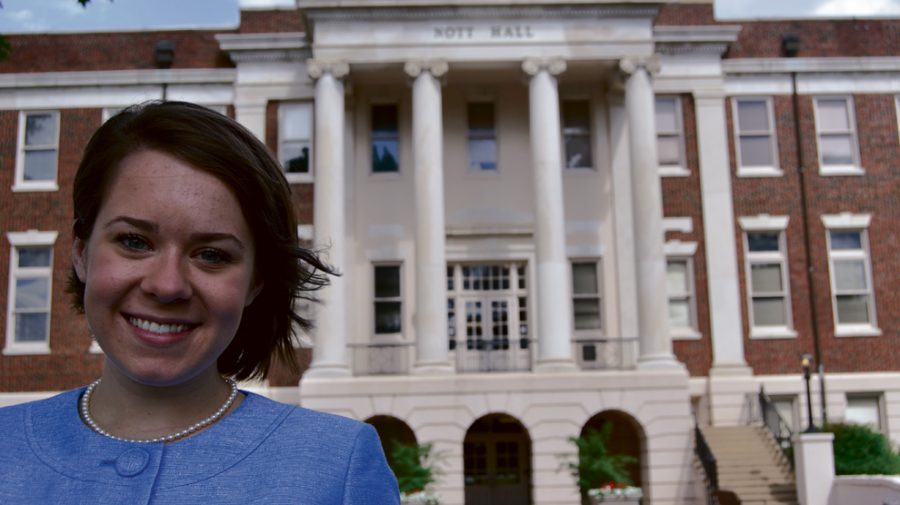The Honors College Assembly (HCA) finalized its leadership slate for its inaugural year on Wednesday with the conclusion of three runoff elections.
Christy Boardman defeated Roger Rozanski for vice president, while Lindsay Scholes beat Emily Hurbert-Wallender for the office of secretary. Theresa Mince claimed the office of treasurer, receiving more votes than Jacqueline Konscol. The three election winners will join President Hallie Paul, who received enough votes to avoid a runoff election.
Paul, a sophomore from Hattiesburg, Miss., said her main goal as Honors College president would be to establish a strong sense of community.
“We have a unique challenge in that we have around 4,000 students, and that’s definitely not the norm when you think of an honors college community. We have to create strong bonds and give people a sense of ownership, a sense of engagement and a sense of community,” Paul said.
She said last week’s elections will begin the process of bringing the community together.
“By formalizing this structure, that should hopefully play a huge role in getting people engaged,” she said.
Another major concern Paul hopes to address is the large percentage of students who only remain in the Honors College for one or two years. Paul said she hopes to address the issue by “making sure when people think about the Honors College, they don’t think about priority registration or living in a certain dorm, but they actually feel a sense of community or connection to the Honors College. Hopefully that can get people to stick with the Honors College.”
Applications for the seven HCA director positions were due April 23 and Honors College faculty will begin the interview process today. Unlike the SGA, faculty and staff will conduct all Honors College assembly director interviews. Anna Foley, incoming student advisory committee chairwoman, hopes to include a mandate in the soon-to-be-drafted HCA constitution that states only those who have previously served as HCA directors are eligible to run for office. Although officers are in place, Foley says the Honors College Assembly is still in its initial stages of development.
“We’ve adopted a basic structure but the details are still to be determined,” Foley said. “We’re going to be working on those throughout the first year of operation to create a constitution and iron out details with [Honors College administrators] to see how they want it to look.”
Foley also confirmed that the creation of the Honor’s College Assembly signals the end of the Honors Program Student’s Association.
“HPSA was appropriate when the Honors College was only 400 students, but as it became more and more irrelevant, most students in the Honors College didn’t know it existed,” Foley said.
The projects and operations of HPSA will now fall under the student life department of the Honors College Assembly.
“We will continue to do the types of things that HPSA does, but this organization will have more breadth,” Foley said.
Foley said the amount of funding the Honors College Assembly receives is yet to be determined, but the money will likely be from within the Honors College.
“We’ll have to see what kind of projects we will look to be doing, what students come up with and see what [the administrators] say,” she said.
Foley said the Honors College Assembly would not seek funding from Student Government Association sources.









